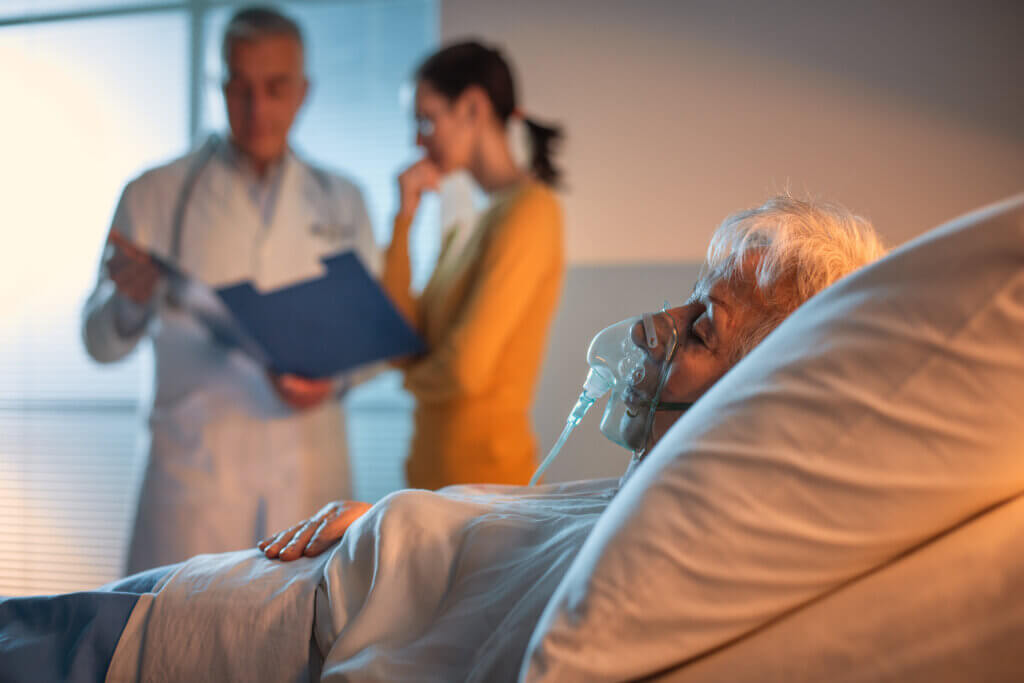A dangerous, drug-resistant fungus is spreading rapidly through hospitals and long-term care facilities, including those in Georgia, according to a recent FOX5 news article. Candida auris (C. auris), a type of yeast first detected in the U.S. in 2016, is now responsible for thousands of infections each year. The CDC reported more than 4,500 U.S. cases in 2023, a 64% increase from 2022. This infection is especially deadly, killing more than 1 in 3 people who become seriously ill.

What Is Candida auris?
C. auris can infect wounds, enter the bloodstream, and affect other parts of the body. It spreads easily in healthcare settings such as hospitals, nursing home facilities, and rehabilitation centers, particularly among patients who are already ill and require invasive medical devices like ventilators, catheters, or feeding tubes. In some cases, patients don’t show symptoms but still carry the fungus on their skin, silently spreading it to others.
The biggest concern? C. auris is often resistant to antifungal medications, making it extremely hard to treat. Some strains don’t respond to any of the main classes of antifungal drugs.
Why Is This a Legal Concern?
Healthcare facilities, including nursing homes and assisted living centers in Georgia, are legally required to maintain clean environments, follow infection control protocols, and provide adequate care to prevent the spread of dangerous illnesses like C. auris. When they fail to do so, the consequences can be deadly.
Under Georgia law, nursing homes must comply with state and federal regulations designed to protect residents from harm. This includes:
- Maintaining proper infection prevention protocols under Georgia Department of Community Health (DCH) rules
- Providing a safe and sanitary environment as required by Georgia Law
- Meeting federal CMS (Centers for Medicare & Medicaid Services) standards for infection control
A facility’s failure to isolate infected patients, clean equipment properly, or staff adequately may amount to nursing home neglect or medical malpractice, depending on the circumstances.
Who Is Most at Risk?
C. auris poses the greatest threat to:
- Elderly patients in nursing homes or assisted living facilities
- Hospital patients with weakened immune systems
- Individuals with central lines, urinary catheters, or ventilators
These individuals depend on proper care and hygiene from healthcare providers. Inadequate staffing, poor training, and unsanitary conditions can quickly turn a treatable condition into a fatal one.
Recent data indicates that C. auris has been spreading in Georgia’s healthcare facilities. As of February 2025, Georgia has detected more than 1,300 cases of C. auris. This marks a significant increase from previous years; for instance, in 2022, there were 12 reported cases in the state.
The Georgia Department of Public Health (DPH) monitors healthcare-associated infections (HAIs), including C. auris. According to the DPH, on any given day, about one in 25 hospital patients have at least one HAI. While C. auris is a growing concern, other HAIs such as bloodstream infections, urinary tract infections, and surgical site infections also pose significant risks in Georgia’s healthcare settings.
These statistics underscore the importance of stringent infection control practices in healthcare facilities to prevent the spread of C. auris and other HAIs. Patients and their families should be aware of these risks and ensure that healthcare providers adhere to recommended infection prevention protocols.
Legal Help for Georgia Families
If your loved one has serious complications or was killed because they developed a Candida auris infection in a Georgia hospital or nursing home, it’s important to ask how and why it happened. In many cases, infections like this are preventable. Facilities that fail to follow infection control guidelines may be liable for the harm caused.
At Blasingame, Burch, Garrard & Ashley, P.C. we hold negligent medical providers and long-term care facilities accountable. Our legal team represents families in Georgia in cases involving:
Schedule a free consultation today to discuss your potential claim. We’re here to help your family find answers. Call us at 706-354-4000 or fill out our online contact form and someone from our dedicated team will be in touch.

